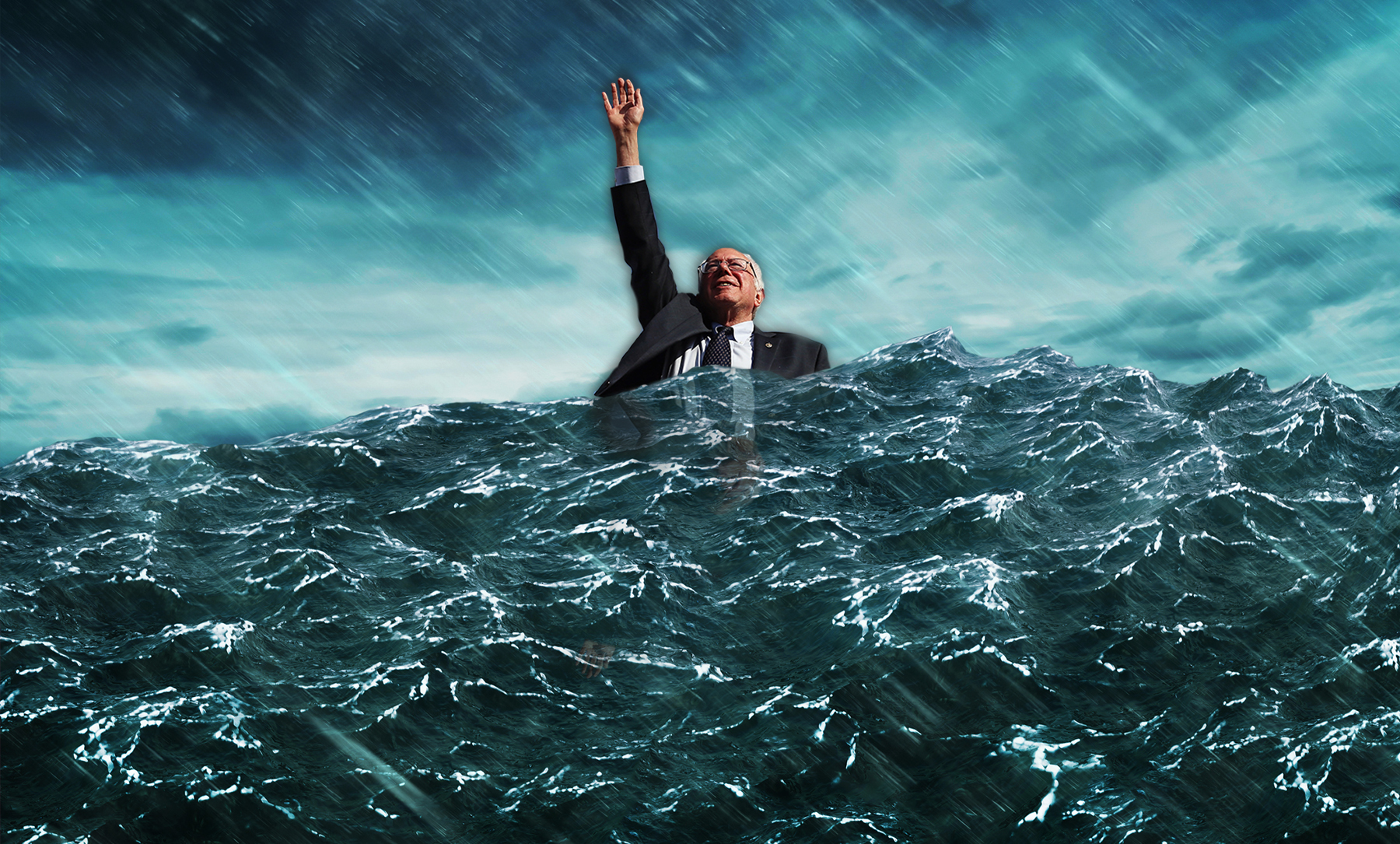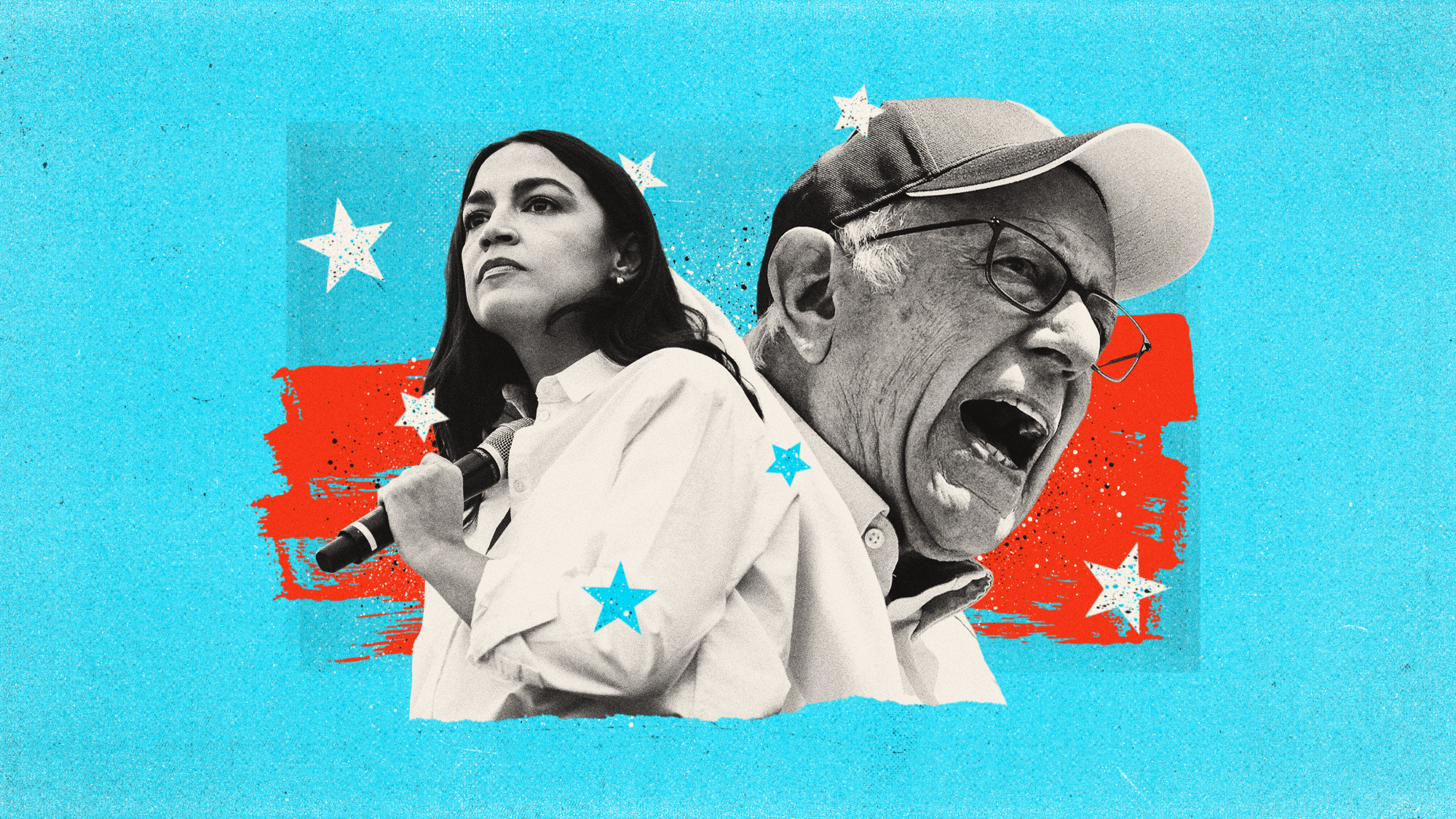Drowning in a sea of Democrats
On the unexpected consequences of the Democrats' enormous 2020 field


A free daily email with the biggest news stories of the day – and the best features from TheWeek.com
You are now subscribed
Your newsletter sign-up was successful
There are 19 candidates for the Democratic presidential nomination polling at 2 percent or less in New Hampshire, according to a recent poll from Monmouth University. Sixteen of them are at or below 1 percent. Thirteen register at zero, including Kirsten Gillibrand and Michael Bennet, both sitting U.S. senators, and Tulsi Gabbard, Eric Swalwell, Seth Moulton, all of whom are members of the House. There is also a governor in there somewhere among the New Age gurus and 89-year-old Alaskan ex-pols and former HUD secretaries. Now another one, Seth — sorry, I mean, Steve — Bullock of Montana, is about to announce his candidacy.
The governor's mansion in Helena must be a pretty boring place. Why else would anyone else want to run against 21 other people? In 2018 we were told over and over about a so-called "blue wave" that was going to wipe out the GOP, which lost the House yet increased its margin in the Senate. Now it looks like the real blue wave will turn out to be the one splashing up from the ocean in which nearly two dozen candidate are paddling furiously.
Only two of the candidates, Joe Biden and Bernie Sanders, are swimming more or less comfortably. Two or three more are barely keeping their heads above water. The rest are drowning. In 1992 or 2004 or 2016, someone like Gillibrand might have been able to distinguish herself by taking the pragmatic middle ground between Hillary Clinton's corporate centrism and Bernie's populist democratic socialism. This doesn't work when there are 15 or more other people all trying to do the same thing.
The Week
Escape your echo chamber. Get the facts behind the news, plus analysis from multiple perspectives.

Sign up for The Week's Free Newsletters
From our morning news briefing to a weekly Good News Newsletter, get the best of The Week delivered directly to your inbox.
From our morning news briefing to a weekly Good News Newsletter, get the best of The Week delivered directly to your inbox.
Those of us who assumed initially that Biden's handsiness would keep him from running or open him to personal criticism from a more or less unified chorus of fellow candidates were wrong. So far his opponents have refrained from criticizing him. In the meantime Biden has channeled the old Clintonite triangulation magic, simultaneously admitting he is out of touch and very sorry for giving offense and complaining that young people today are too sensitive about things like having their shoulders touched or their hair sniffed by random geriatric strangers.
Also mistaken was the assumption that a large field would necessarily benefit Sanders. Instead of sapping away at Biden's centrist liberal coalition, the other candidates are largely ignored by voters. So far Sanders seems to have a ceiling of somewhere between 18 and 25 percent. Even if he were to capture all of the primary electorate currently behind Warren, the candidate closest to him ideologically, he would still be trailing well behind Biden in the Granite State, where one in three likely Democratic primary voters have already decided they are sticking with the former vice president.
The math looks even better for Uncle Joe after New Hampshire. Among black voters, who make up a large portion of the Democratic primary electorate in South Carolina, Biden leads Sanders 58 to 15. His share among African-Americans is larger than that of the next eight candidates combined. This is probably insurmountable. And it means that other candidates, chief among them Kamala Harris, whose strategies depend on winning or achieving a close second in South Carolina are all but doomed.
A week, Harold Wilson said, is a long time in politics. It's still possible that Biden's fortunes will change between now and the beginning of next year's primary contests. His opponents could decide they have nothing to lose and everything to gain by attacking him — perhaps by seizing upon something from his past that, unlike his past support for school busing or his tough-on-crime rhetoric or his belief that gay people shouldn't be allowed to serve in the federal government or his contention that Anita Hill was "lying," will actually outrage Democratic voters. We have already seen rapid rises and equally precipitous falls in this campaign. Beto O'Rourke went from being the hottest commodity in American politics, the subject of endless fawning profiles, to a marginal figure on par with Alan Keyes.
A free daily email with the biggest news stories of the day – and the best features from TheWeek.com
For now, though, the Democratic nomination is Biden's to lose. A serious blow to his candidacy will only help Sanders, who is not going to be leap-frogged by anyone currently polling in single digits — i.e., every other candidate, declared or otherwise.
I hope everyone else is wearing life jackets.
Matthew Walther is a national correspondent at The Week. His work has also appeared in First Things, The Spectator of London, The Catholic Herald, National Review, and other publications. He is currently writing a biography of the Rev. Montague Summers. He is also a Robert Novak Journalism Fellow.
-
 Political cartoons for February 21
Political cartoons for February 21Cartoons Saturday’s political cartoons include consequences, secrets, and more
-
 Crisis in Cuba: a ‘golden opportunity’ for Washington?
Crisis in Cuba: a ‘golden opportunity’ for Washington?Talking Point The Trump administration is applying the pressure, and with Latin America swinging to the right, Havana is becoming more ‘politically isolated’
-
 5 thoroughly redacted cartoons about Pam Bondi protecting predators
5 thoroughly redacted cartoons about Pam Bondi protecting predatorsCartoons Artists take on the real victim, types of protection, and more
-
 The billionaires’ wealth tax: a catastrophe for California?
The billionaires’ wealth tax: a catastrophe for California?Talking Point Peter Thiel and Larry Page preparing to change state residency
-
 Mamdani vows big changes as New York’s new mayor
Mamdani vows big changes as New York’s new mayorSpeed Read
-
 Bari Weiss’ ‘60 Minutes’ scandal is about more than one report
Bari Weiss’ ‘60 Minutes’ scandal is about more than one reportIN THE SPOTLIGHT By blocking an approved segment on a controversial prison holding US deportees in El Salvador, the editor-in-chief of CBS News has become the main story
-
 Has Zohran Mamdani shown the Democrats how to win again?
Has Zohran Mamdani shown the Democrats how to win again?Today’s Big Question New York City mayoral election touted as victory for left-wing populists but moderate centrist wins elsewhere present more complex path for Democratic Party
-
 Millions turn out for anti-Trump ‘No Kings’ rallies
Millions turn out for anti-Trump ‘No Kings’ ralliesSpeed Read An estimated 7 million people participated, 2 million more than at the first ‘No Kings’ protest in June
-
 Ghislaine Maxwell: angling for a Trump pardon
Ghislaine Maxwell: angling for a Trump pardonTalking Point Convicted sex trafficker's testimony could shed new light on president's links to Jeffrey Epstein
-
 The last words and final moments of 40 presidents
The last words and final moments of 40 presidentsThe Explainer Some are eloquent quotes worthy of the holders of the highest office in the nation, and others... aren't
-
 The anger fueling the Bernie Sanders and Alexandria Ocasio-Cortez barnstorming tour
The anger fueling the Bernie Sanders and Alexandria Ocasio-Cortez barnstorming tourTalking Points The duo is drawing big anti-Trump crowds in red states
